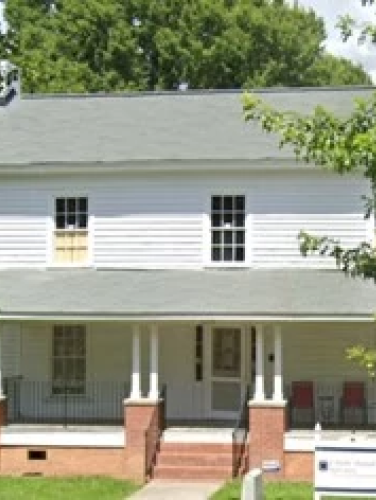
McEwen-Moore Farmhouse
(ca. 1887)
Built by William H. Freeman for Carl McEwen, the McEwen-Moore Farmhouse was later re-acquired by the original builder for his own livestock.
2015 Moore Rd, Matthews, NC 28105
Although the arrival of the Carolina Central Railway in Matthews in 1874 radically transformed the interior of the isolated town from a rural meeting place to a municipal center, the outskirts of Matthews remained as they had always been, with farms dotting the landscape. Those farms used Matthews as their central source for supplies and provisions as well as an outlet to market their goods, yet they still retained their rural character as the world around them changed. One such extant example of that phenomenon is the McEwen-Moore Farmhouse.
Property Quick Links
The two-story I-form vernacular house was built on a nearly sixty-five acre farm by William H. Freeman (1869-1947), a farmer and notable carpenter whose work included construction of the Matthews Presbyterian Church and the teacherage for Matthews School. Built originally for Carl McEwen, Freeman decided around 1920 that he wanted the property for his own livestock. He traded McEwen a property he owned on 7th Street in Charlotte for the Matthews farm. After some initial difficulty securing an overseer for the property and his livestock, Freeman entrusted the farm to his daughter Katherine and her husband, William (Floyd) Moore. Freeman gave the couple a choice of the three farms he owned in and around Matthews, and they chose the McEwen-Moore property. They officially purchased the house and land from Freeman in December 1931 and raised five children there.
Floyd Moore kept pigs, horses, and cattle on the farm, but also grew cotton, corn, wheat, and oats to support his family. During the Great Depression, the family sold buttermilk and eggs to customers as far away as Charlotte to make extra income. Floyd expanded an existing cotton barn on the property circa 1931 to accommodate his burgeoning cotton operations. He took his cotton into Matthews to be ginned, where the family would also stock up on groceries either at Renfrow’s or at Funderburk’s General Stores, both of which were located on Trade Street in the center of town.

